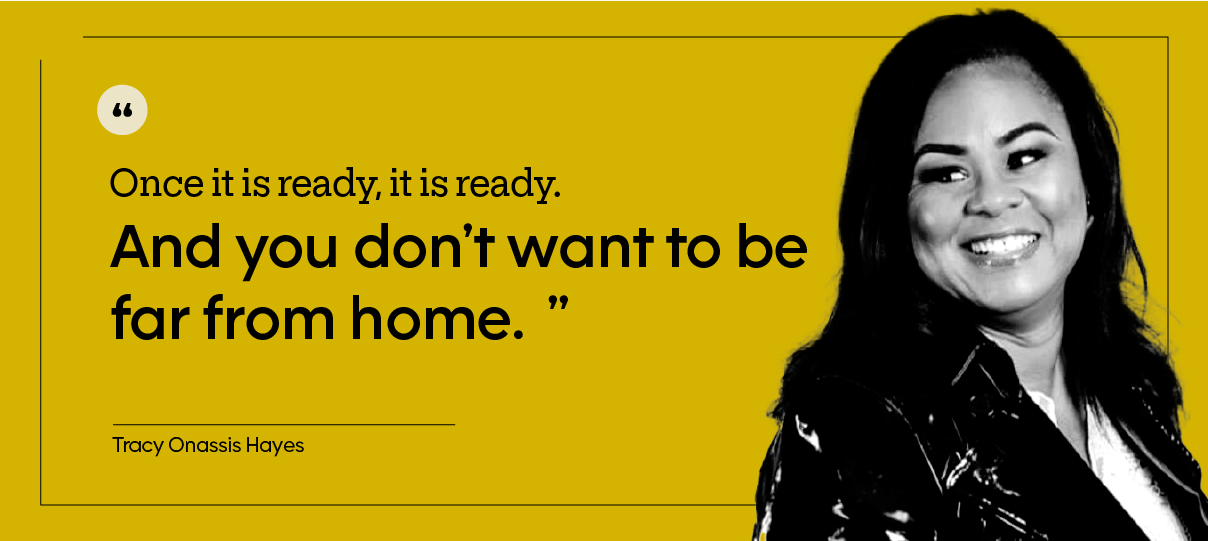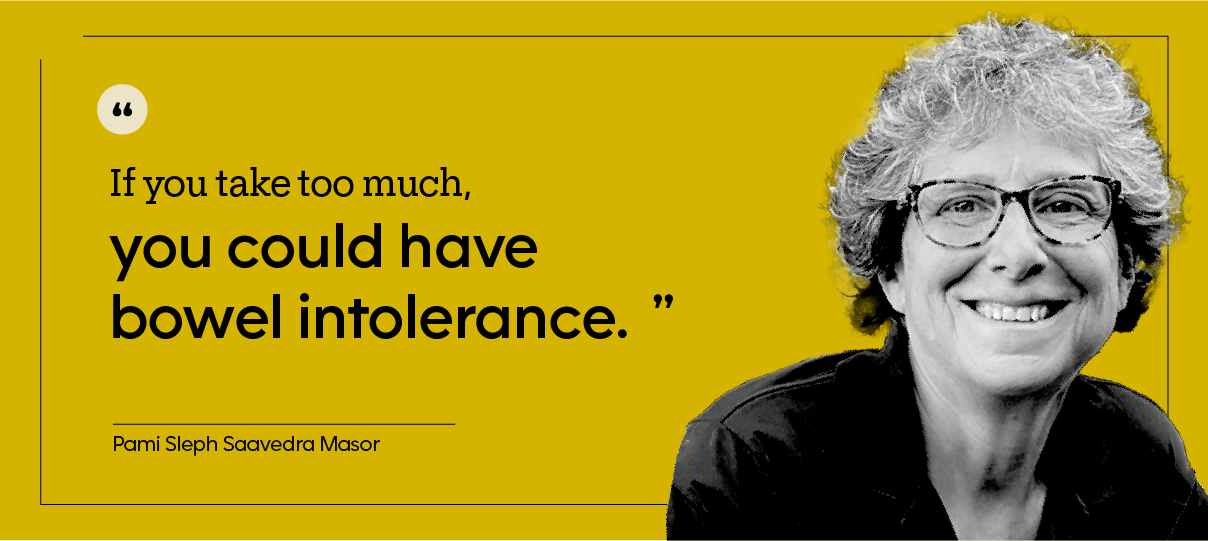Key takeaways:
Magnesium citrate is a fast-acting laxative that’s sold without a prescription.
It’s best taken overnight or when you can stay close to a restroom.
Magnesium citrate should be taken with plenty of water for best results.
Save on related medications
Magnesium citrate has always been the go-to laxative for Tracy Onassis Hayes. As a longtime soldier in the U.S. National Guard, Tracy, of Little Rock, Arkansas, says she used magnesium citrate to ease bloating.
Now 51 and retired, she still uses the laxative to cope with constipation from iron she must take to treat chronic anemia. She buys magnesium citrate from the supermarket. The taste, she says, “is bearable; not nasty but not something you want to drink every day.”
Using caution and taking small doses
It’s important to take magnesium citrate in small doses, Tracy says. Once, she took the maximum recommended adult dose. She fell asleep without incident, but the next morning, the bowel movement “seemed almost Iike a volcano was erupting in my stomach.”
Over time, Tracy says she learned that a lower dose taken at night produced a more gentle and effective result the following morning. Unlike other laxatives, she says, magnesium citrate actually works and “doesn’t give me terrible cramps, especially if I take it at night.”

“Magnesium citrate has become my preferred method, to be honest,” Tracy says. “The only thing is, once it is ready, it is ready. And you don’t want to be far from home.”
An inexpensive option when you’re feeling blocked up
Now retired from three decades as a massage therapist in Louisville, Kentucky, Pami Sleph Saavedra Masor takes magnesium citrate capsules as a daily supplement. It helps with her constipation.
Pami, age 63, says she adjusts the dosage to help keep bowel movements timely but not rushed. “If you take too much, you could have bowel intolerance.”

Pami says she prefers to take magnesium citrate instead of prescription laxatives before a colonoscopy. That’s because, for her, prescription laxatives have proven unnecessarily expensive or harsh and caused symptoms like bloating.
“I take it the day before I am supposed to have the colonoscopy,” Pami says. “I may end up going to the bathroom all night, but it is done by the next day. I also drink a lot of water because I don’t want to dehydrate.”
Magnesium citrate ‘comes in handy when you need it’
Victoria Mack teaches acting to college students in Savannah, Georgia. She used to be an actor in New York City, but switched to teaching after being diagnosed with Ehlers Danlos syndrome, a rare chronic disease. Constipation is one of the side effects of her condition.
Victoria buys magnesium citrate in powdered form. Over the last 10 years, she says her daily dose varies between ½ teaspoon and 4 teaspoons. She adjusts the dosage based on how she is feeling that day.
Magnesium citrate “comes in handy when you need it,” says Victoria, who is 43. “It depends on what is happening with my body, how constipated I am. It feels so gentle once you find out the amount your body likes to have.”

Other laxatives, Victoria says, have given her headaches or cramps. In contrast, magnesium citrate taken in the proper dosage “really was a lifesaver for me. I can’t think of any drawbacks.”
What does the pharmacist say?

Stacia Woodcock, PharmD
Pharmacy Editor
Constipation symptoms include less frequent bowel movements (fewer than 3 per week), incomplete emptying of the bowels, and stools that are hard and difficult to pass.
Treatment for constipation starts with lifestyle changes, such as drinking enough water, eating more fiber (fruits and vegetables), and sometimes taking stool softeners or laxatives.
Magnesium citrate is an over-the-counter saline laxative that works by pulling water into your stool to help it move through your body. Magnesium citrate can be used to relieve occasional constipation. It’s also sometimes used before a colonoscopy or other bowel procedure. Your healthcare provider will give you specific directions to follow if you’re using it for this reason.
Magnesium citrate is available in several different forms, including a liquid, powder, or capsule. Regardless of which form you take, it’s best to always take magnesium citrate with a full glass of water. Since it pulls water into your stool to work, drinking enough water while taking magnesium citrate will help it work. Water can also prevent dehydration if you experience diarrhea.
You should feel relief within 30 minutes to 6 hours of taking magnesium citrate. It works faster than stool softeners and some other laxatives, but is gentler than rectal enemas or suppositories. Still, cramping and diarrhea are possible, especially with larger doses. Start with a small dose and increase as needed to lessen the chance of side effects.
Magnesium citrate may affect the way your body absorbs some medications. And it may not be the best choice for you if you have kidney problems.
Long-term laxative use can be harmful to your health. If you find that you need to use magnesium citrate for more than 7 days at a time, be sure to talk to your healthcare provider. There could be something else going on that needs to be addressed.
Magnesium citrate (as well as any laxative) is also not appropriate to use for weight loss. Laxative abuse can lead to dangerous electrolyte imbalances. It may also increase the risk of developing an eating disorder. Your healthcare provider can help you find a safe weight-loss method if you’re concerned about your weight.

Why trust our experts?













